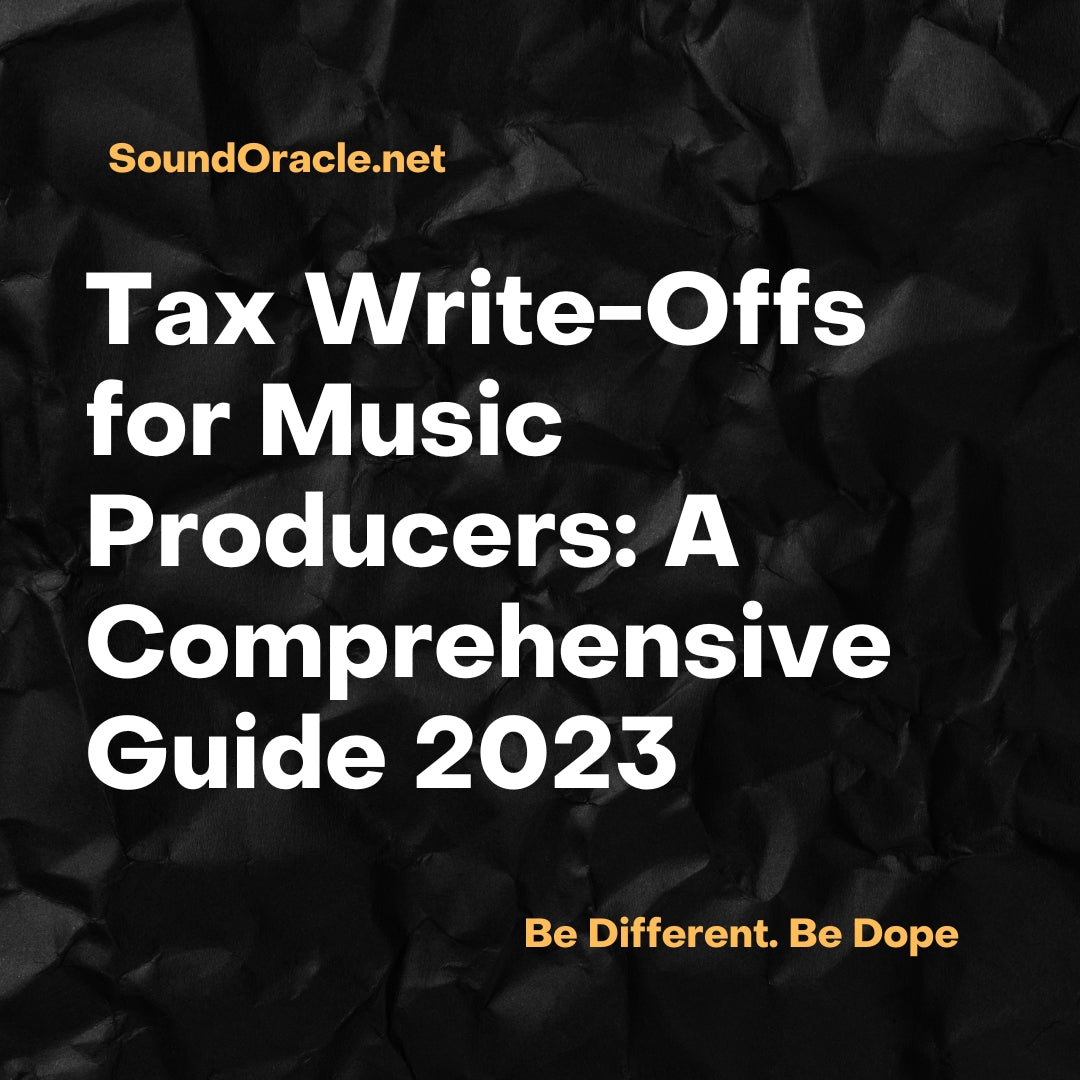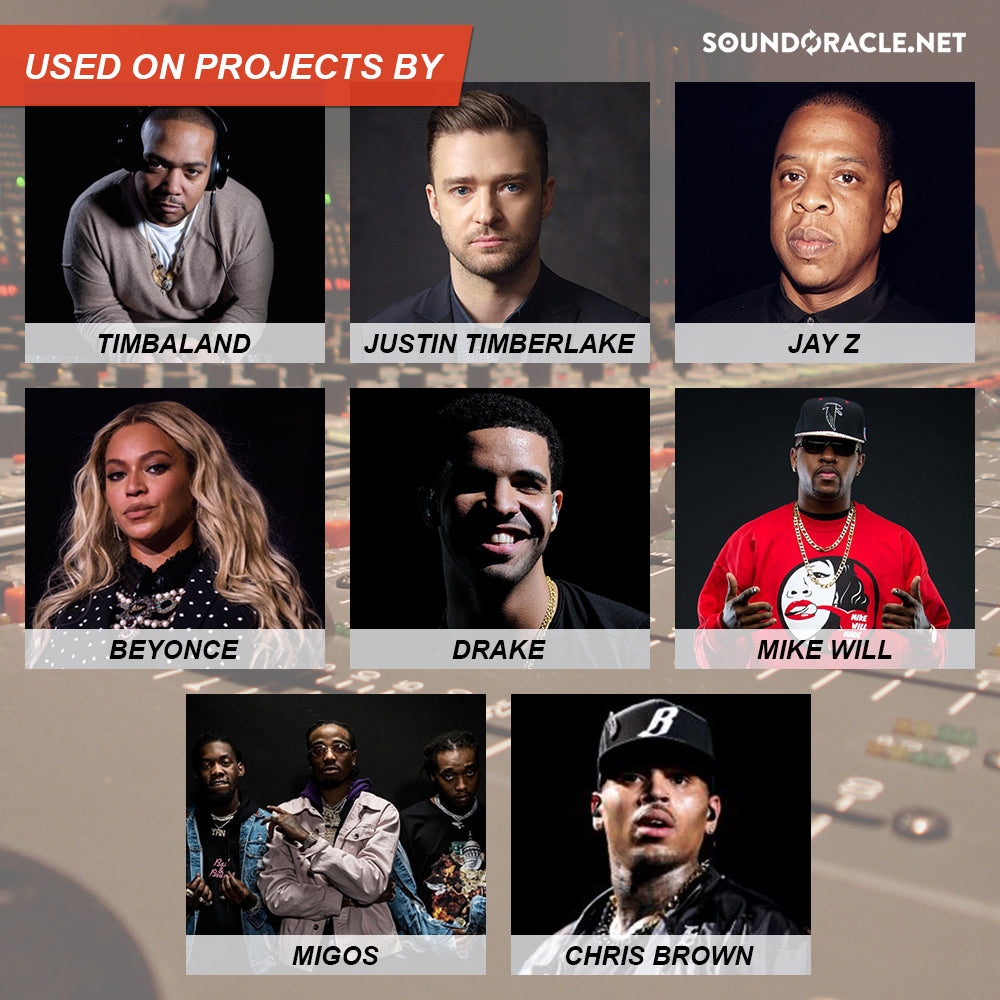
Tax Write-Offs for Music Producers: A Comprehensive Guide 2023
In the music industry, tax season can be a challenging time of year. As a music producer, it can be daunting to understand what expenses are deductible and what paperwork is needed to maximize your tax write-offs. In this comprehensive guide, we'll provide a breakdown of tax write-offs for music producers, so you can focus on creating great music.
Introduction
Tax write-offs are a great way to reduce your taxable income and save money on taxes. For music producers, knowing what expenses are deductible can help you save money and maximize their earnings. In this guide, we'll cover the most common tax write-offs for music producers.
Section 1: Home Studio Expenses
If you have a home studio, you may be able to deduct a portion of your rent or mortgage payment as a home office expense. You can also deduct expenses related to setting up and maintaining your home studio, such as equipment, utilities, and repairs. To qualify for this deduction, your home studio must be used exclusively for business purposes.
1.1. Rent or Mortgage Payment
If you own or rent a space for your home studio, you may be able to deduct a portion of your rent or mortgage payment as a home office expense. The amount you can deduct is based on the percentage of your home that is used exclusively for business purposes.
1.2. Equipment Expenses
Equipment expenses are generally tax-deductible, including microphones, headphones, monitors, and other audio equipment used for your business. You can also deduct expenses related to the maintenance and repair of this equipment.
1.3. Utilities and Repairs
Expenses related to utilities and repairs for your home studio, such as electricity, internet, and phone bills, are also tax-deductible.
Section 2: Equipment and Software
As a music producer, you likely invest a significant amount of money in equipment and software. Fortunately, these expenses are generally tax-deductible. You can deduct the cost of new equipment, repairs, and upgrades, as well as any subscriptions or software purchases.
2.1. Equipment Expenses
Equipment expenses are tax-deductible as long as they are used for business purposes. This includes audio equipment, such as microphones and speakers, as well as computers and other hardware used for producing music.
2.2. Software Expenses
Software expenses, including subscriptions to digital audio workstations (DAWs) and other software used for producing music, are also tax-deductible.
Section 3: Education and Training
As the music industry evolves, it's important to stay up-to-date with the latest trends and techniques. Fortunately, expenses related to education and training are also tax-deductible. This can include tuition, workshops, conferences, and even online courses.
3.1. Tuition and Workshops
Expenses related to tuition and workshops, including classes and training sessions, are tax-deductible as long as they are directly related to your business.
3.2. Conferences and Online Courses
Expenses related to attending conferences and online courses, including registration fees and travel expenses, are also tax-deductible as long as they are directly related to your business.
Section 4: Travel Expenses
As a music producer, you may need to travel for work, whether it's to meet with clients, attend industry events, or work on location. Travel expenses, such as airfare, lodging, and meals, are tax-deductible as long as they are directly related to your business.
4.1. Airfare and Lodging
Expenses related to airfare and lodging are tax-deductible as long as they are directly related
4.2. Meals
However, the rules around meal deductions can be complicated. Generally, you can deduct 50% of the cost of meals as long as they are directly related to your business. This includes meals with clients, business partners, and other industry professionals. However, if you're attending a conference or seminar, the meal expense may be fully deductible. Keep in mind that you must keep detailed records of the date, time, location, and purpose of the meal, as well as the names and business relationships of those in attendance.
Section 5: Marketing and Promotion
As a music producer, you may need to invest in marketing and promotion to attract new clients and build your brand. Fortunately, these expenses are generally tax-deductible.
5.1. Advertising Expenses
Expenses related to advertising and promotion, such as website development and hosting fees, social media advertising, and print ads, are tax-deductible as long as they are directly related to your business.
5.2. Artist Promotion
Expenses related to promoting your artists, such as music videos and live performances, are also tax-deductible.
Section 6: Miscellaneous Expenses
In addition to the expenses listed above, there are a variety of other expenses that may be tax-deductible for music producers.
6.1. Legal and Professional Fees
Legal and professional fees, such as those paid to accountants, attorneys, and business consultants, are tax-deductible as long as they are directly related to your business.
6.2. Insurance Premiums
If you have insurance for your business, such as liability insurance, the premiums may be tax-deductible.
Conclusion
As a music producer, understanding tax write-offs can help you save money and maximize your earnings. By keeping detailed records of your expenses and working with a qualified tax professional, you can ensure that you're taking advantage of all the deductions available to you.
FAQs:
- Can I deduct expenses for my home studio even if I also use it for personal use?
- No, to qualify for a home office deduction, the space must be used exclusively for business purposes.
- Can I deduct the cost of attending music festivals or concerts as a music producer?
- It depends. If you attend these events for business purposes, such as to network with industry professionals or to promote your own work, then the expenses may be tax-deductible.
- Are meal expenses fully deductible if they are related to a music conference or seminar?
- Yes, meal expenses related to attending a conference or seminar may be fully deductible.
- Can I deduct the cost of a new car if I use it for work as a music producer?
- It depends. You may be able to deduct the cost of a new car if it is used exclusively for business purposes. However, if you also use the car for personal use, the deduction may be limited.
- How can I ensure that I'm taking advantage of all the tax write-offs available to me as a music producer?
- Keeping detailed records of your expenses and working with a qualified tax professional can help ensure that you're taking advantage of all the deductions available to you.


